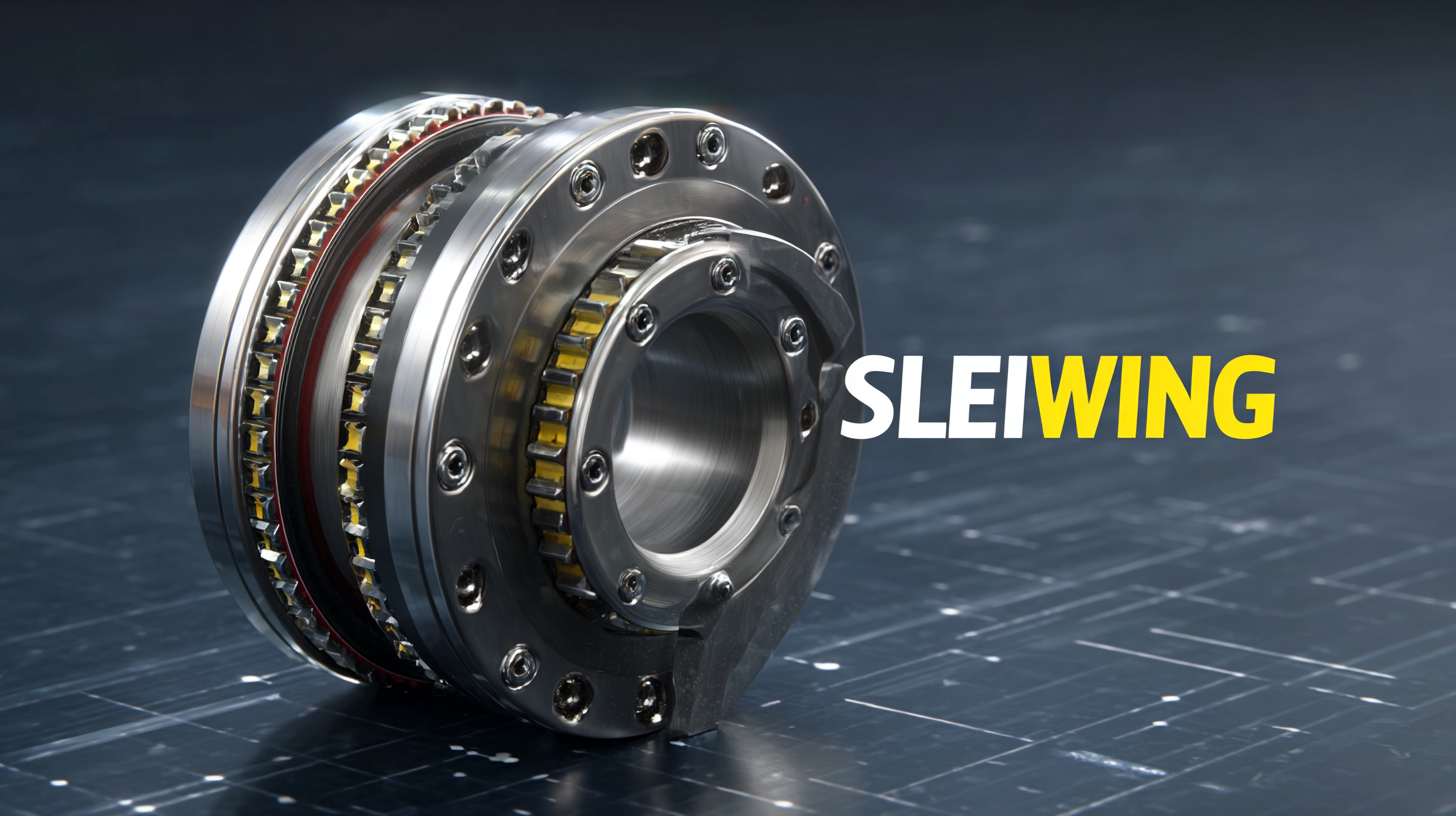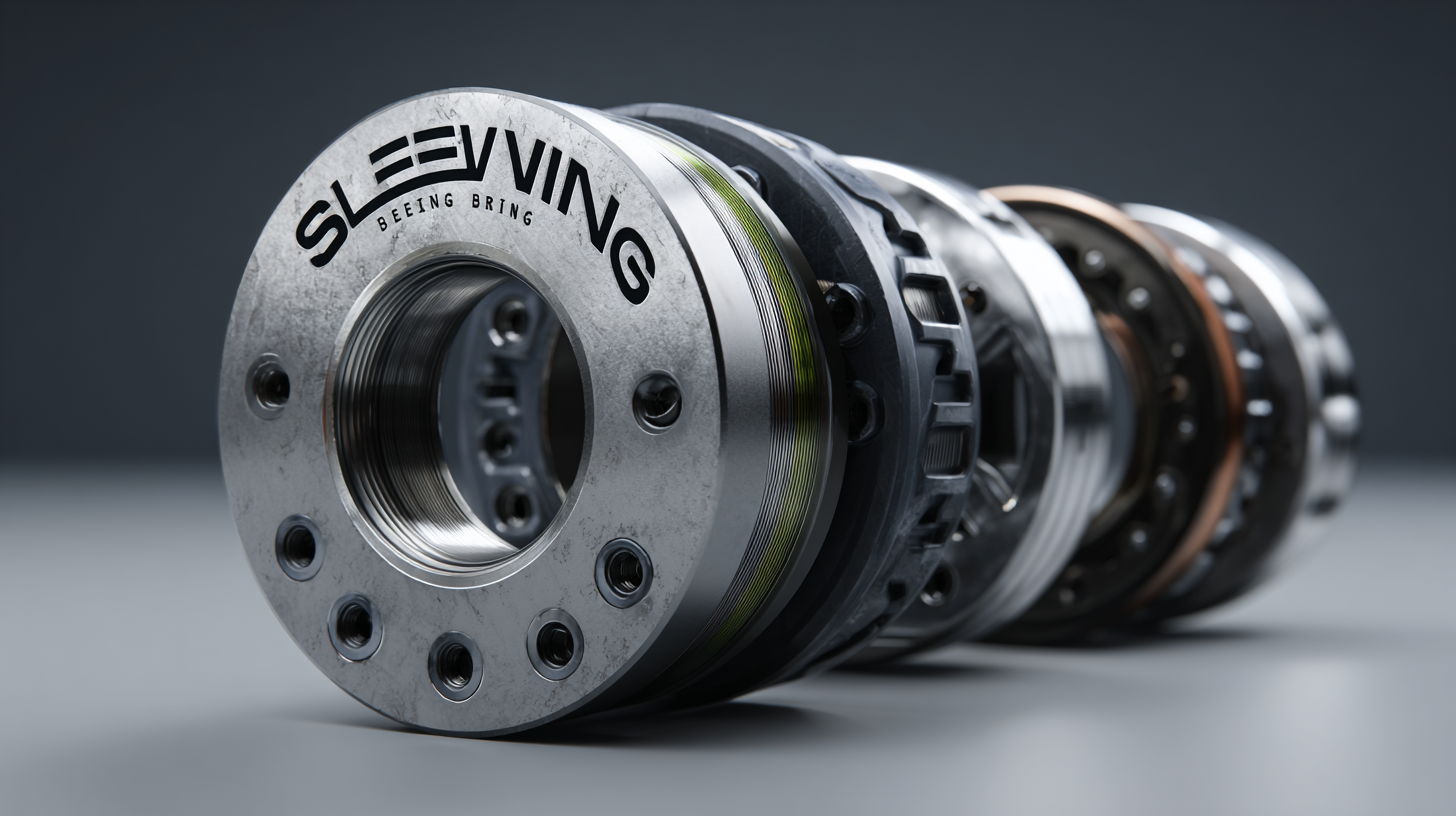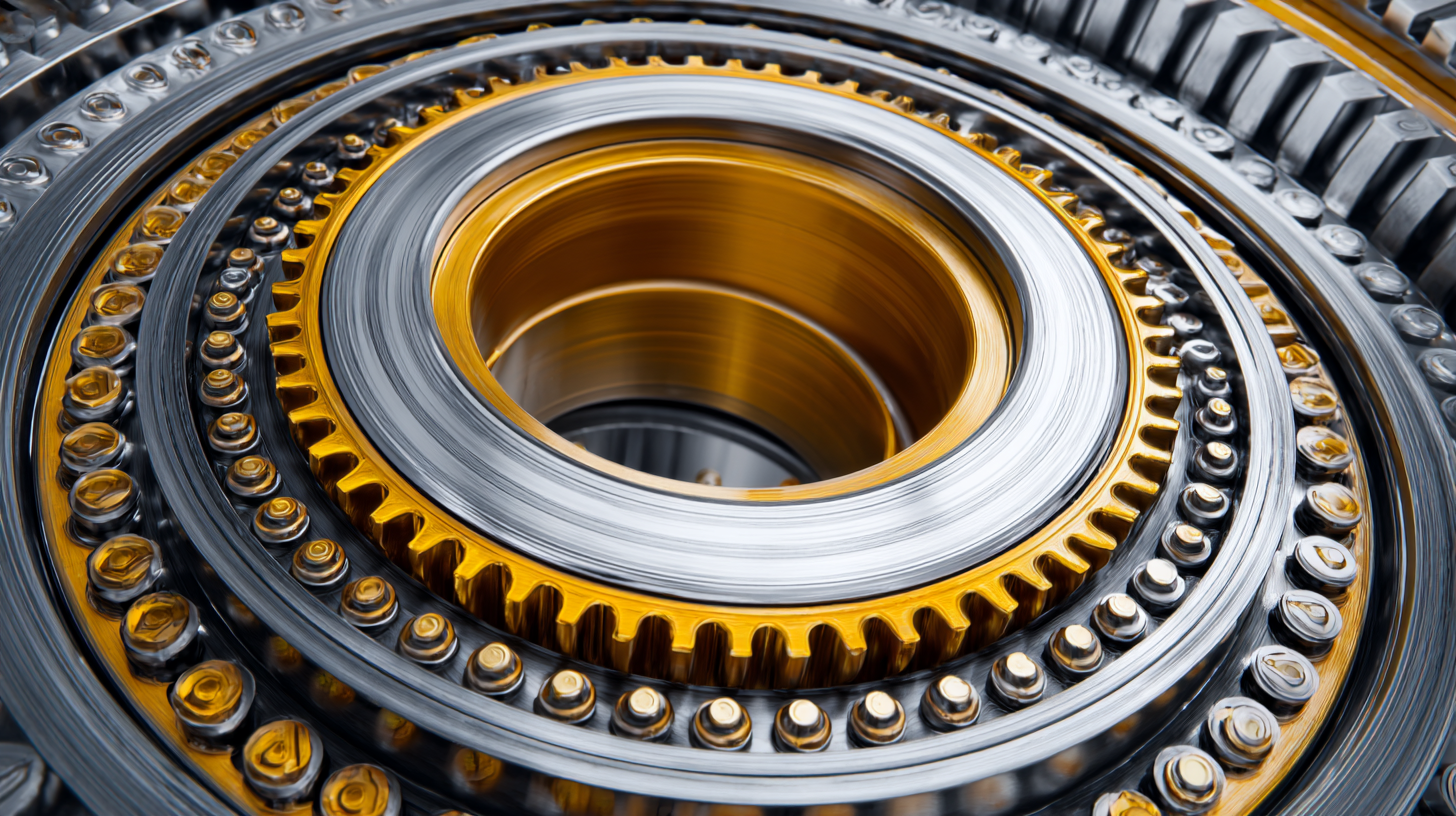
Finding the right slewing bearing supplier is crucial for ensuring the longevity and performance of your machinery. Slewing bearings are critical components used in various applications, from cranes and excavators to wind turbines and radar systems. However, with a multitude of suppliers in the market, distinguishing the best ones can be a daunting task. This blog will serve as your ultimate checklist for selecting high-quality manufacturing partners, focusing on essential criteria such as product durability, manufacturing standards, and quality assurance practices. By following these guidelines, you'll be well-equipped to make informed decisions that meet your specific requirements and help you avoid costly pitfalls in your projects. Whether you are a seasoned engineer or a procurement specialist, understanding how to choose a reliable slewing bearing supplier can significantly impact your operational success.

When searching for the best slewing bearing suppliers, it is essential to establish clear criteria to evaluate their quality assurance practices. First, consider the supplier's reputation in the industry; a reliable supplier will have a track record of delivering high-quality products and services. Look for certifications such as ISO 9001, which indicates that the supplier adheres to rigorous quality management standards. Customer reviews and testimonials can also provide valuable insight into the supplier's operational effectiveness and reliability.

Another critical factor is the supplier's range of offerings and technical expertise. A supplier that offers a diverse selection of slewing bearings can better meet specific requirements, whether for heavy machinery, construction equipment, or industrial applications. Assess their knowledge of materials, design capabilities, and manufacturing processes, as these elements significantly influence the quality and durability of the bearings. Additionally, effective after-sales support is crucial; a supplier that prioritizes customer service ensures that any issues can be promptly addressed, reinforcing their commitment to quality assurance.
When evaluating potential slewing bearing suppliers, asking the right questions is crucial to ensure you partner with a reputable company that meets your quality assurance standards. Start by inquiring about their manufacturing processes and quality control measures. Understanding how they manage production and the steps taken to guarantee the integrity of their products can provide valuable insight into their commitment to quality.
Next, consider asking about the supplier's experience and expertise in the slewing bearing industry. Inquire about their history, client base, and any certifications they possess. A supplier with a proven track record and industry recognition is more likely to provide high-quality products and reliable service. Additionally, don't overlook the importance of customer support; ask about the after-sales services they provide and how they handle complaints or issues. Ensuring that they have a robust support system in place can save you time and prevent future complications.
When selecting slewing bearing suppliers, one of the most critical aspects to consider is their adherence to quality assurance standards. Quality assurance in slewing bearings encompasses a set of rigorous processes and guidelines that manufacturers must follow to ensure their products meet the necessary performance and safety requirements. Key standards such as ISO 9001, which focuses on effective quality management systems, play a vital role in evaluating a supplier's reliability. A supplier committed to these standards will not only enhance the performance durability of their bearings but also reduce risks associated with equipment failure.
Moreover, understanding the various quality assurance tests that slewing bearings undergo can significantly influence supplier selection. These tests often include dimensional accuracy checks, materials verification, and load capacity assessments. Suppliers who perform thorough testing and validation are more likely to provide reliable products that can withstand harsh operating conditions. When assessing potential suppliers, it’s advisable to inquire about their quality assurance protocols and certifications to ensure they align with industry standards.
This level of diligence can ultimately lead to better investment outcomes and operational efficiency in projects utilizing slewing bearings.
When evaluating slewing bearing suppliers, certifications play a crucial role in determining the quality and reliability of products. Various industry reports indicate that up to 70% of companies prioritize supplier certifications in their purchasing decisions. This highlights the importance of ISO 9001 certifications, which ensure that a supplier follows international quality management standards. A recent study by the Bearing Manufacturers Association revealed that suppliers with ISO 9001 certifications exhibit a 25% lower defect rate compared to non-certified suppliers.
In addition to ISO certifications, other qualifications such as API 611 for gearboxes and ASME certifications for products exposed to significant stress are also of paramount importance. A supplier’s adherence to these standards demonstrates their commitment to manufacturing excellence and safety compliance. Furthermore, the Global Slewing Bearing Market report indicates that suppliers with diverse certifications not only foster trust among clients but also enhance their market competitiveness, making them a preferred choice for companies seeking reliability and superior quality in their slewing bearings.
| Supplier Region | Quality Certifications | Lead Time (weeks) | Minimum Order Quantity | Customer Support Availability |
|---|---|---|---|---|
| Asia | ISO 9001, ISO 14001 | 8 | 50 units | 24/7 Support |
| Europe | ISO 9001, CE Marking | 6 | 30 units | Business Hours Support |
| North America | AS9100, ISO 9001 | 5 | 20 units | Weekdays 9-5 |
| South America | ISO 9001 | 10 | 100 units | Email Support |
| Australia | ISO 9001, ARA | 4 | 10 units | Chat Support |
When selecting a slewing bearing supplier, it's crucial to be vigilant and watch for potential red flags that could indicate a problematic partnership. One major concern is the lack of transparency in communication—from vague answers to unreturned inquiries, these behaviors often signal deeper issues within the company's operations. Suppliers that are hesitant to provide information about their manufacturing processes, quality certifications, or customer references should be approached with caution.

Another significant red flag is inconsistent pricing and terms. If a supplier frequently changes pricing or contract terms without clear justification, it may suggest instability or questionable business practices. This could lead to unforeseen costs after your order is placed, impacting your project budget and timeline. Additionally, poor reviews or testimonials from previous clients can be telling. Suppliers with a history of unsatisfactory service or product quality might not be equipped to meet your demands, ultimately resulting in a loss of time and resources. Being aware of these warning signs can help you forge a reliable and effective supplier relationship.